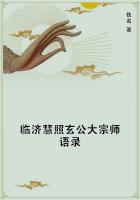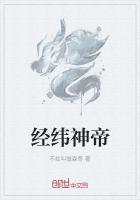Nevertheless, when the sun of the Middle Ages is completely set, when the Gothic genius is forever extinct upon the horizon, architecture grows dim, loses its color, becomes more and more effaced. The printed book, the gnawing worm of the edifice, sucks and devours it. It becomes bare, denuded of its foliage, and grows visibly emaciated. It is petty, it is poor, it is nothing. It no longer expresses anything, not even the memory of the art of another time. Reduced to itself, abandoned by the other arts, because human thought is abandoning it, it summons bunglers in place of artists. Glass replaces the painted windows. The stone-cutter succeeds the sculptor.
Farewell all sap, all originality, all life, all intelligence.
It drags along, a lamentable workshop mendicant, from copy to copy. Michael Angelo, who, no doubt, felt even in the sixteenth century that it was dying, had a last idea, an idea of despair. That Titan of art piled the Pantheon on the Parthenon, and made Saint-Peter's at Rome. A great work, which deserved to remain unique, the last originality of architecture, the signature of a giant artist at the bottom of the colossal register of stone which was closed forever. With Michael Angelo dead, what does this miserable architecture, which survived itself in the state of a spectre, do? It takes Saint-Peter in Rome, copies it and parodies it. It is a mania.
It is a pity. Each century has its Saint-Peter's of Rome; in the seventeenth century, the Val-de-Grace; in the eighteenth, Sainte-Geneviève. Each country has its Saint-Peter's of Rome. London has one; Petersburg has another; Paris has two or three. The insignificant testament, the last dotage of a decrepit grand art falling back into infancy before it dies.
If, in place of the characteristic monuments which we have just described, we examine the general aspect of art from the sixteenth to the eighteenth century, we notice the same phenomena of decay and phthisis. Beginning with Fran?ois II., the architectural form of the edifice effaces itself more and more, and allows the geometrical form, like the bony structure of an emaciated invalid, to become prominent. The fine lines of art give way to the cold and inexorable lines of geometry. An edifice is no longer an edifice; it is a polyhedron. Meanwhile, architecture is tormented in her struggles to conceal this nudity. Look at the Greek pediment inscribed upon the Roman pediment, and vice versa. It is still the Pantheon on the Parthenon: Saint-Peter's of Rome. Here are the brick houses of Henri IV., with their stone corners;the Place Royale, the Place Dauphine. Here are the churches of Louis XIII., heavy, squat, thickset, crowded together, loaded with a dome like a hump. Here is the Mazarin architecture, the wretched Italian pasticcio of the Four Nations.
Here are the palaces of Louis XIV., long barracks for courtiers, stiff, cold, tiresome. Here, finally, is Louis XV., with chiccory leaves and vermicelli, and all the warts, and all the fungi, which disfigure that decrepit, toothless, and coquettish old architecture. From Fran?ois II. to Louis XV., the evil has increased in geometrical progression. Art has no longer anything but skin upon its bones. It is miserably perishing.
Meanwhile what becomes of printing? All the life which is leaving architecture comes to it. In proportion as architecture ebbs, printing swells and grows. That capital of forces which human thought had been expending in edifices, it henceforth expends in books. Thus, from the sixteenth century onward, the press, raised to the level of decaying architecture, contends with it and kills it. In the seventeenth century it is already sufficiently the sovereign, sufficiently triumphant, sufficiently established in its victory, to give to the world the feast of a great literary century. In the eighteenth, having reposed for a long time at the Court of Louis XIV., it seizes again the old sword of Luther, puts it into the hand of Voltaire, and rushes impetuously to the attack of that ancient Europe, whose architectural expression it has already killed. At the moment when the eighteenth century comes to an end, it has destroyed everything.
In the nineteenth, it begins to reconstruct.
Now, we ask, which of the three arts has really represented human thought for the last three centuries? which translates it? which expresses not only its literary and scholastic vagaries, but its vast, profound, universal movement? which constantly superposes itself, without a break, without a gap, upon the human race, which walks a monster with a thousand legs?--Architecture or printing?















